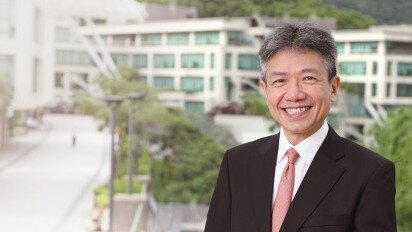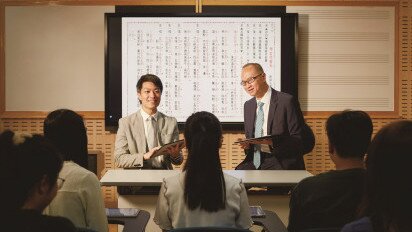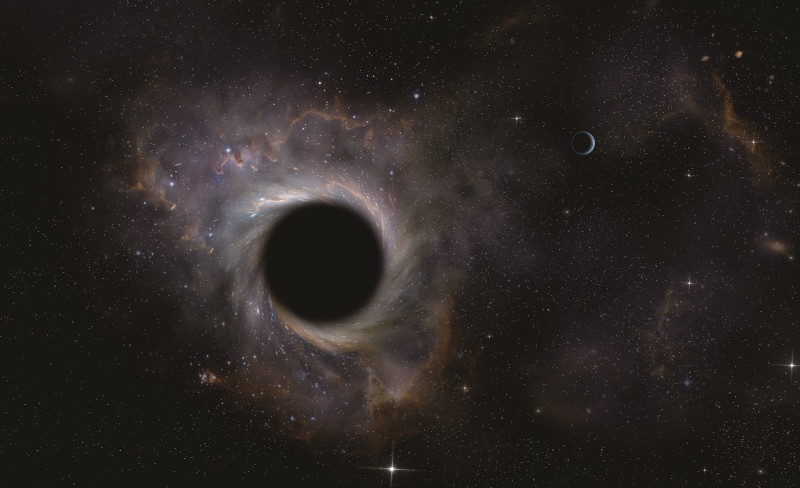
The enigmatic black hole is a subject which fascinates many of us. Associate Professor of the Department of Science and Environmental Studies Dr Chan Man-ho’s interest in astronomy was piqued as a child, when he borrowed a book on the solar system from his older brother. In high school, he furthered his passion by joining various amateur astronomy societies, and later majored in physics at university, where he began to learn about dark matter in the universe. Since then he has delved into the study of black holes.
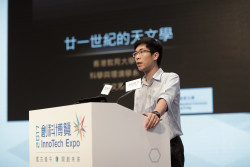
Dr Chan speaking on astronomy at the InnoTech Expo 2017
A different view of dark matter research
Dark matter has long mesmerised astronomers, as it dominates the expansion of the universe and the formation of galaxies; yet human knowledge is still limited.
Recently, Dr Chan selected the two black holes closest to Earth (A0620-00 and XTE J1118+480) as his research subjects. Using a computer simulation of the ‘dark matter dynamical friction model’, he and his team calculated the orbital speed of the black hole's companion star and indirectly confirmed the existence of a large amount of dark matter surrounding the black hole. This dark matter creates a huge resistance on the companion star, causing its orbital speed to slow down.
I feel responsible for sharing scientific knowledge with young people.
Previous studies have relied on observations of gamma rays and gravitational waves to detect the presence of dark matter around black holes. However, this method often depends on rare astronomical phenomena such as black hole mergers. Dr Chan says, “This pioneering study breaks through the traditional limits and provides an important new direction for future dark matter research.” The results have been peer-reviewed and published in astronomical research journal Astrophysical Journal Letters.
Science and theology can be compatible
“I am particularly interested in things that are mysterious, especially those which are invisible yet relevant to our knowledge,” says Dr Chan. After graduating, he pursued master's and doctoral degrees in astrophysics, and then obtained a master's in theology and a doctorate in philosophy. He describes himself as “quirky” because most scholars would choose to specialise in a single discipline, whereas he “touches on everything”.
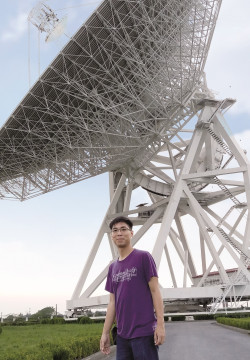
Next to the 65-metre Tianma Radio Telescope in Shanghai, used in his research work
To the casual observer, science and theology are inherently contradictory. As a physicist, Dr Chan is used to using forces to explain different things. He admits that there are indeed some “competing forces” between science and theology. However, these forces are precisely what give value to academic discussion and research. He adds that they are not so great that they cannot be reconciled. In fact, his unique academic background brings benefits, as it allows him to have a broader perspective, a different way of thinking, and connect everything together.
Although his A-level grades were good enough for him to enter medical school, Dr Chan followed his heart and chose to study physics. “I believe that anyone's potential can be maximised if they work or study in areas in which they are interested,” he says. He encourages young people to follow their dreams and strive for excellence in whatever they choose.


